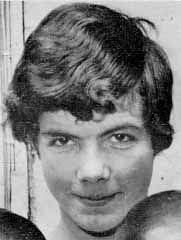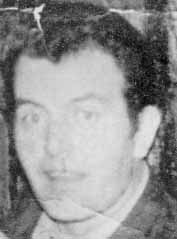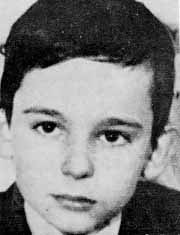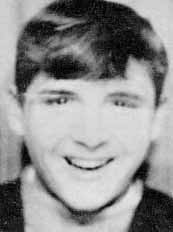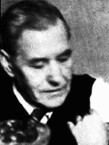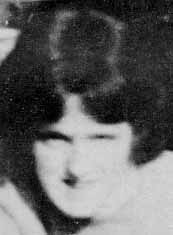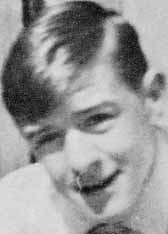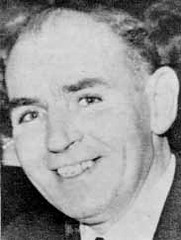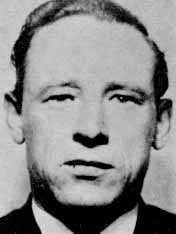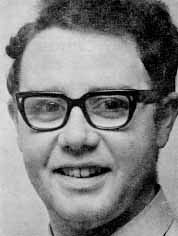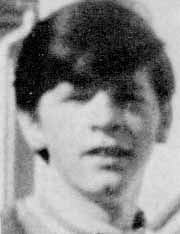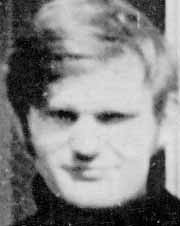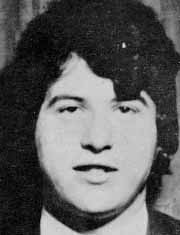IRISH REPUBLICAN INFORMATION SERVICE (no. 52)
Teach Dáithí Ó Conaill, 223 Parnell Street, Dublin 1,
Ireland
Phone: +353-1-872 9747; FAX: +353-1-872 9757; e-mail:
saoirse@iol.ie
Date: 30 Eanáir / January 2006
Internet resources maintained by SAOIRSE-Irish Freedom
http://saoirse.rr.nu
Irish Republican Information Service
THE body styling itself 'Limerick Republican
Information Service' is not connected with the Irish
Republican Information Service (IRIS), 223 Parnell
Street, Dublin 1, email saoirse@iol.ie and has not
been authorised either by IRIS or by the body that
sponsors IRIS, Republican Sinn Féin. Therefore it is
totally unauthorised and should be regarded as such.
In this issue:
1. Wreaths at Edentubber Memorial vandalised
2. Commemoration of Bloody Sunday perpetrators
'incomprehensible'
3. Dungannon website back
4. British Army has 'veto' on house plans
5. Inquiry call after O'Loan hears of bar blast
cover-up
6. RUC 'is outside killings probe'
7. Cover-up at 'cabinet level'
8. British police open fire in Co Tyrone
9. Selective policy of the Catholic Church
1. WREATHS AT EDENTUBBER MEMORIAL VANDALISED
THE PRO of the Joe Conway/ Willie Stewart Cumann,
Republican Sinn Féin, Newry/Dundalk, said in a
statement on January 30 that it had come to their
attention that wreaths laid by the Republican Movement
at the Edentubber Commemoration had their memory cards
removed and were thrown behind nearby hedges by
vandals.
"On inspection it was clear that wreaths laid by the
Provisionals remained untouched Cumainn from all over
Ireland laid wreaths in honour of the brave martyrs
who died at that spot in a premature explosion on
November 11, 1957. Any interference was only an
insult to the memory of those men.
"This is not the first time Republican Sinn Féin have
encountered such a problem, every Easter similar
vandalism occurs all over the country. Has it now
become a Provo policy to attempt to destroy any
evidence of the existence of a true Republican
Movement, even if it requires desecrating the graves
of Republican patriots?
"Republican Sinn Féin will not be deterred or
silenced; neither will we lower ourselves to
desecrating sacred Republican ground with petty acts
of vandalism. We are the true inheritors of Tone,
Pearse and indeed the Edentubber Martyrs who fought to
rid Ireland of British Interference once and for all."
2. COMMEMORATION OF BLOODY SUNDAY PERPETRATORS
'INCOMPREHENSIBLE'
IN A statement on January 30, Richard Walsh, Derry,
Assistant PRO, Republican Sinn Féin, said that
thirty-four years ago fourteen men were brutally shot
down by the British Forces of Occupation on what
became known as Bloody Sunday.
He went on: "It is strange that a commemoration for
these men would conclude with a call for candles to be
lit in memory of all those who lost their lives over
the past thirty years of conflict - including those
who perpetrated some of the most heinous crimes
against the Irish people.
"Let those who sent the forces of the British Crown
out to wage war against the Irish people commemorate
those who fought and died to maintain England's
military occupation. To expect the relatives of their
victims to honour those responsible for the
mass-murder of Irish citizens in Derry in January,
1972 is surely beyond comprehension."
3. DUNGANNON WEBSITE BACK
THE McKearney McCaughey Cumann Republican Sinn Féin
website www.rsfdungannon.com which was a great source
of information regarding Republican Sinn Féin in
Tyrone was taken off the Internet under mysterious
circumstances in the past week.
The PRO of the Cumann said that the web provider told
them that their site's name had not been renewed but
the name had paid for the name until 2007.
"Unfortunately we could not redeem the
www.rsfdungannon.com site and have had to start from
scratch. We believe sinister forces were behind this
attack on our right to free speech and we call on
every one to view our site and pass a link to every
one in their address book together we can overcome
censorship and let the truth prevail.
"The name www.freewebs.com/rsfeasttyrone is a
temporary name we hope to have a shorter version when
the site is complete. The McKearney McCaughey Cumann
can also be contacted by phoning or sending a text to:
07706497123."
4. BRITISH ARMY HAS 'VETO' ON HOUSE PLANS
A HOMEOWNER in Co Armagh has complained after the
British army confirmed it had an input into planning
applications in the area.
The British army's involvement in the planning process
came to light at the end of January when south Armagh
man Martin Clarke revealed that the British Ministry
of Defence had held up an application by Northern
Ireland (Sic) Electricity to connect his new home in
Dromintee to the electricity grid.
NIE requires planning permission to erect five
electricity poles that will carry power to Martin
Clarke's new home. After a delay of several months,
the angry Armagh man was told that planners had
finally received approval from the British army for
the poles.
"This caused me a major inconvenience. NIE did a
survey and got permission from the landowners and it
was referred to the planners.
"I was told that they then referred the matter to the
Ministry of Defence in London, where it was probably
left in a corner somewhere. This job should have been
done in September but I'm still waiting to get into my
new home. I was very surprised to learn that the
hold-up was caused by the British army," he said.
5. INQUIRY CALL AFTER O'LOAN HEARS OF BAR BLAST
COVER-UP
RELATIVES of 15 people killed in a bomb attack on a
Belfast bar have demanded a full public disclosure
about events surrounding the attack after a
groundbreaking meeting with the British Police
Ombudsman.
Nuala O'Loan was told at the gathering of relatives of
those killed in the 1971 attack on McGurk's Bar that
the British Crown forces in collusion with loyalist
paramilitaries, had intended to bomb an Official IRA
bar close to McGurk's to create a rift between
Republican factions in 1971.
However, the bomb gang targeted McGurk's Bar after the
killers failed to get near their target at the Gem Bar
on North Queen Street.
Nuala O'Loan met with relatives of those killed during
the last week in January.
The meeting was described as "very positive" by the
families and is the latest development as part of an
ongoing investigation by officials from the British
Police Ombudsman's office into the conduct of the RUC
in the aftermath of the bomb.
Pat Irvine, whose mother Kathleen (53) was murdered in
McGurk's, said relatives' demanded "transparency and
full and public accountability into the investigation
at the time".
"We believe no proper investigation was carried out
after the bombing. When the Ombudsman's investigation
is completed we want the truth to be made public and
that's what Nuala O'Loan promised us at the meeting,"
she said.
"We also want a full retraction of the statements of
misinformation that were fed to the media in 1971 and
in subsequent years after."
Pat Irvine said the relatives were finally confident
that the official branding of their loved ones at the
time that they were culpable in the bombing after
officials said it went off inside the premises, would
be dismissed outright in the Ombudsman's high-level
probe.
It has also emerged that a Scottish MP - whose
73-year-old relative Philip Garry was killed in the
explosion - has also taken up the case of McGurk's and
has directly quizzed the British Six County Secretary
in the British House of Commons about the names of the
accomplices in the bombing.
Michael Connarty MP said he would be writing to Peter
Hain and passing on to him all the evidence in his
possession gathered and passed onto him by the
families.
"My grandmother's brother, who we knew as uncle
Philly, was a merchant seaman and was always visiting
us in Scotland. I was about 14 at the time he was
killed and I know from my grandmother that they [the
British Crown forces] tried to say the bomb was inside
the bar when it went off. It was always said in the
family folklore that it was a cover-up by the security
forces," he said.
.
"The issues raised were noted and will be considered
as part of the Police Ombudsman's investigation into
this case," she added.
6. RUC 'IS OUTSIDE KILLINGS PROBE'
THE BRITISH Six-County Office was urged to release
millions of pounds in funding to allow the Six-County
Policing Ombudsman to investigate 48 killings carried
out by members of the RUC.
Human Rights Group, the Pat Finucane Centre (PFC) led
calls on January 23 for the British government to pour
resources into British Ombudsman Nuala O'Loan's office
so that an investigating team can begin probing RUC
killings before 1998.
It has emerged that cases involving the RUC will not
be investigated in the Historical Enquiries Team
(HET), which began examining 100 unsolved killings on
January 23.
The HET plans to revisit the case files of 3,000
unsolved murders from 1969 until the signing of the
Stormont Agreement in 1998.
It is feared that some relatives of people killed by
the RUC may wrongly assume that their cases will be
probed by the HET.
The investigation team was set up at a cost of £24.3
million ( €35.29 million). A further £7.3 million
(€10.6 million) has been earmarked for forensic
investigations into so-called "cold cases".
The probing of killings carried out by the RUC falls
under the remit of the Policing Ombudsman's Office,
which at present does not have the financial resources
to examine the cases.
A spokesman for the Ombudsman said: "It is anticipated
that we will require additional resources and there is
ongoing discussions on that."
PFC spokesman Paul O'Connor accused the British
Six-County Office of blocking progress towards
reopening the cases.
"Our worry is that there are people out there who may
be thinking that the Historical Enquiries Team is
going to examine cases.
"Our view is that it is totally unjust that a relative
of someone killed by police in 1969 will not be
investigated while the case of someone killed by an
unknown gunman will. That situation is untenable and
totally unacceptable. This is about families being
left out."
7. COVER-UP AT 'CABINET LEVEL'
26-COUNTY cabinet ministers may have known of a Garda
plot to cover up the murder of a Co Louth man by
loyalists 30 years ago, his nephew said on January 24.
Michael Donegan was speaking after appearing before a
Leinster House subcommittee sitting to consider the
Barron report on the murder of Séamus Ludlow.
A British-backed Loyalist death squad Red Hand
Commando gang, including at least one member of the
British army's Ulster Defence Regiment (UDR), murdered
the 47-year-old on May 2, 1976.
The Garda immediately blamed the murder on the IRA
despite suspecting it to be the work of loyalists. In
1979, the RUC told gardaí that loyalists were
responsible, giving them the names of the four men
involved in the killing. However, this information was
not pursued at the time and withheld from the Ludlow
family until the mid-1990s.
When the Ludlows learned of the true nature of their
relative's death they pressurised the 26-County
government into commissioning Judge Henry Barron's
report into the murder.
Published in November it was highly critical of the
Garda investigation, but stopped short of recommending
a full public inquiry.
Appearing before the Leinster House subcommitte,
Michael Donegan repeated his calls for an inquiry into
the murder. He also accused senior officials in the
Garda and the 26-County government of covering up
details of the murder.
He said: "The cover up certainly extended to the top
levels of the Garda and Department of Justice, and
maybe even the Dublin cabinet.
"The only way to get to the truth is through a public
inquiry. The Oireachtas subcommittee doesn't have the
power to call witnesses or demand documents. Because
of this, it is flawed."
Michael Donegan said at this stage his family are not
"particularly interested" in tracking down the
loyalist gang who murdered his uncle.
"We are more interested in finding out why the state
let us down, why they let our uncle Séamus down," he
added.
Earlier, family solicitor James McGuill said: "This
has been an appalling three decades of experience of
how an ordinary law-abiding family found themselves in
a set of completely life-changing circumstances which
was compounded by the state authorities they had to
deal with."
The Leinster House subcommittee will deliver its
findings on the Barron report on March 31.
8. British police open fire in Co Tyrone
THE British colonial police opened fire on a car whose
occupants allegedly tried to knock down a police
officer at a checkpoint in Co Tyrone on January 26.
The RUC/PSNI said members began chasing the car when
it drove through the checkpoint on the Dooish Road in
Dromore.
They alleged the driver twice rammed the patrol car
that was following him and the shot was fired when he
tried to knock down one of their members at St
Dympna's Road.
The car, which was carrying two occupants, sped away
from the scene and was found abandoned a short time
later.
The Police Ombudsman, Nuala O'Loan, who investigates
all shots fired by the police in the North, was
informed of the incident.
Claim: Altnaveigh member 'assaulted by FAIR rep'
THE RUC/PSNI are investigating a claim that a member
of the Six-County Department of Social Development was
assaulted by a representative of Willie Frazer's FAIR
group. The same group, which is planning to hold a
provocative Loyalist, march in Dublin in February.
The incident is alleged to have occurred on January 25
during a meeting arranged by the Six County Department
of Social Development at Altnaveigh House's Newry HQ.
It was attended by British Minister of State David
Hanson and a number of Protestant victims' groups.
According to a source, a member of Altnaveigh House
who was showing a disabled person the way to the
bathroom was grabbed by the throat by Kilkeel man
Maynard Hanna.
A spokeswoman for Altnaveigh House said she would not
be making a statement on the situation at this stage,
while a representative of the Six County DSD said that
it would be 'inappropriate' for the British Government
body to comment.
A RUC/PSNI spokesman confirmed that police are aware
of an alleged incident in Altnaveigh House and are
dealing with it according to the wishes of the person
who made the complaint. It is thought unlikely that
there will be a prosecution.
Maynard Hanna was the secretary of the Kilkeel branch
of the Ulster Unionist Party until it was dissolved in
January 2004. At the time, he was quoted as saying
that members were disillusioned with the then party
leader David Trimble and his policies.
9. SELECTIVE POLICY OF THE CATHOLIC CHURCH
IN A statement on January 28 the Joe Conway/Willie
Stewart Cumann, Republican Sinn Féin, Newry/Dundalk,
hit out at the selective policy of the Catholic Church
in relation to the draping of the Irish Tricolour on
the coffins of Irishmen and Irishwomen.
The statement went on: "It is apparently the policy of
the Catholic Church to allow individual priests to
decide whether or not it is appropriate to allow a
funeral mass to be celebrated while the Tricolour
remains on the coffin and there have been instances
where families were forced to choose, on behalf of
their deceased relatives, between a Catholic funeral
mass and a celebration of their Nationality. This is
extremely difficult for families who have lost a loved
one, particularly if in life that person felt equal
faith in their national identity and their religious
beliefs.
"We believe that this is a blatant attempt to allow
individual priests to enforce their political views
upon the people of this country. This policy has been
enforced with terrible hypocrisy and individual
priests have decided, based on their own political
sympathies and often on anti-Republican tendencies,
that those not associated with the 26-County State
cannot celebrate their nationality in death. We see
no reason why ANY Irish citizen should be denied the
right to a last expression of their nationhood,
regardless of creed or class."
ENDS
